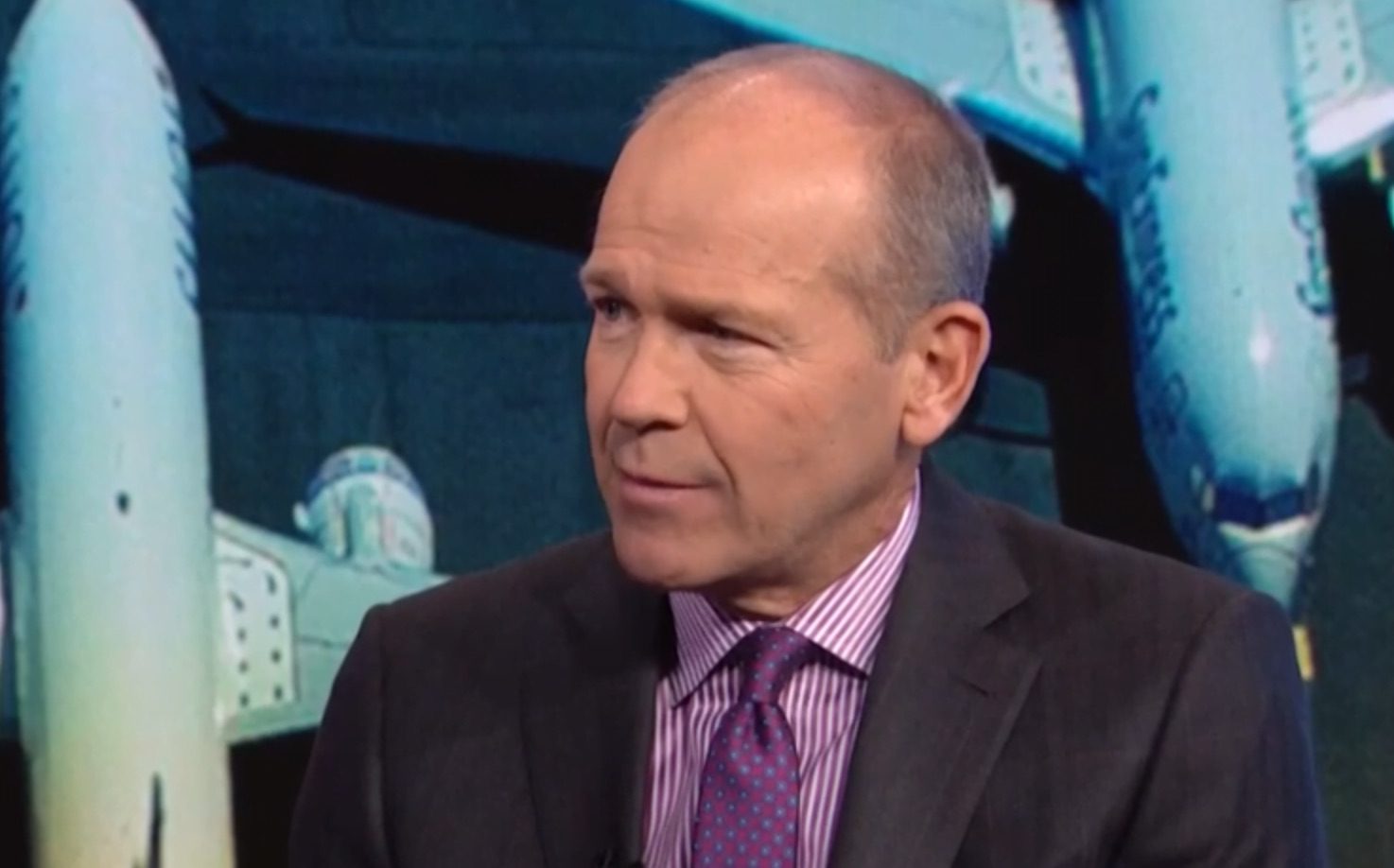
David Calhoun
NEWS:
Boeing Commercial Aircraft has been struggling over the last decade with multiple problems related to quality and safety. Both the 787 and 737 MAX were grounded for safety reasons, the company has consistently underestimated the time and costs of certification, and virtually all of its programs were not ready with the proper quality and safety on time.
Let’s look at the track record. The 787 Dreamliner was three years late and incurred massive cost overruns that will translate to that program unlikely to be profitable. The KC-46 tanker has been fraught with technical glitches that resulted in the aircraft being unable to perform its mission on several occasions. The 777-X failed a routine structural pressure test and is running late, with EIS now projected in 2022 instead of 2020. The 737 MAX was rushed to market with too many compromises between old and new technology, and a system that unthinkably relied on a single sensor that was the major contributing factor to two crashes that cost 346 lives. That track record is abysmal and certainly does not reflect industry leadership.
The pressure at Boeing to increase production throughput was relentless prior to the MAX and global pandemic crises, and the supply chain was having difficulty keeping up with demands. Fundamentally, the company lost its ability to produce airplanes and deliver them on time and on budget.
ANALYSIS:
Between the MAX grounding and the global pandemic, Boeing is facing a massive drop in demand and the need to temporarily downsize its operations. Demand for new aircraft has turned negative, with more than 800 MAX order cancellations this year. Combined with requests to defer deliveries, Boeing’s parking spaces in Everett and Charleston are now also full of undelivered 787s. With the 737 MAX still grounded, production has restarted at a low rate.
The lower near-term demand has presented Boeing with an opportunity to stop, re-assess, and re-start its operations with a focus on correcting the internal issues that have generated four problematic aircraft programs. While many of the problems have been corrected, management needs to focus on changing the culture for future success as we enter an era of technological change and the potential electrification of commercial aircraft before 2040.
The problems at Boeing clearly revolve around several issues:
• A toxic culture that needs to encourage alternative inputs and internal dissent;
• A lack of program management skills to bring an airplane into service on-time and on-budget;
• Consistent underestimation of requirements to initially appease senior management, even if unrealistic;
• A renewed commitment to safety, and the transparency with regulators necessary to re-create the destroyed trust;
• Elimination of the arrogance perpetuated by the attitude of the Boeing management team;
• A change in focus from Wall St. to the quality of airplanes;
• Re-aligning manufacturing processes for built-in quality; and
• Re-gaining a positive relationship with employees and unions.
Now, while the company is not busy producing airplanes, would be an appropriate time to address these fundamental issues. It is unlikely that we will again, in our lifetimes, see this type of a slowdown that enables a fundamental re-examination of company activities from the top down. The question is whether Boeing’s senior management realizes the depth of their problems, the internal sources for many of their difficulties, and is willing to make the changes necessary to fix the problems.
INSIGHT:
David Calhoun has his hands full as CEO at Boeing. The MAX crisis and restoring the MAX to service is the company’s top priority, as, without the MAX, the company’s cash flow would be unsustainable long term. Everyone at Boeing understands the urgency and priority. Yet during the MAX crisis, the arrogance of the management team and culture continued to undermine the relationship with the FAA and customers to the degree that it became necessary to fire Dennis Muilenberg.
The question revolves around an insular corporate culture in Chicago and Seattle that still rests on the laurels of past generations. The 747, a magnificent achievement, is now gone after 50 years. The 787 provided revolutionary improvements but placed the company in financial jeopardy. The MAX fiasco resulted from an insular culture with heads clearly buried in the sand, after being surprised by Airbus. The need to shortcut the development time frame led to compromises in safety, withholding information from the FAA to speed up the certification time frame for entry into service, and hiding critical safety information from regulators, customers, and pilots. That part of Boeing’s culture, a lack of transparency and fundamentally dishonest dealings with its regulators, customers, pilots, and passengers, needs to be culled immediately and permanently.
The first steps have been taken. The new management team is moving forward. But, as usual, Boeing has been unable to communicate clearly and effectively what it is doing, how it is changing, and how it will solve its current problems across multiple programs. Building confidence requires clear communications within and outside of an organization, but we haven’t heard much from Boeing in that regard.
Changing a culture that has been ingrained in an organization if difficult. But when a company is facing a crisis, the time may be right to implement changes. This is the time Boeing needs to clean up its program management capabilities. This is the time it needs to stop making unrealistic promises regarding the certification of new aircraft to potential customers. If a program now takes six years instead of four, just plan for it! A downturn is a perfect time to implement positive changes, reinforce those changes with actions, and set the stage for those changes to be implemented as the industry recovers.
Unfortunately, what we hear from Boeing is mostly silence, which indicates that senior management and the Board remain happy with the culture that exists within the organization, and that change is unlikely to occur. That’s unfortunate because the company needs to transition from a culture of failure and recovery to one of continuous success.
One fact is clear – Boeing can’t rest on its legacy forever and needs to start meeting its requirements, delivering on-time and on-budget, and emphasizing safety and becoming more transparent with its constituents if it wants to recover to its former size, or merely a shadow of its former self when the industry recovers from the global pandemic. The more than 800 MAX cancellations this year are sending a clear message that unless Boeing acts, the latter is more likely than the former.
Views: 3




